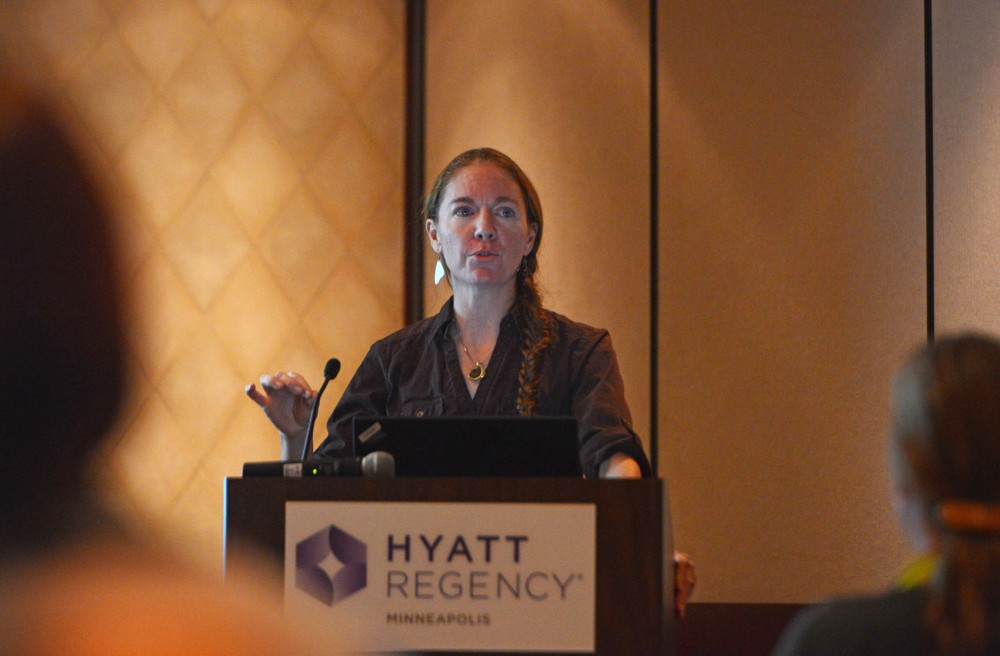Large institutions like the University of Minnesota are working to become leaders in addressing climate change as the issue grows in the state with heavier rainfalls and warmer temperatures.
About 200 students and college and business sustainability leaders from across the Midwest gathered on Thursday for the second annual climate adaptation conference.
At the event, which was hosted by the University’s Water Resources Center, sustainability leaders and academics discussed ways universities can act as climate adaptation hubs, influencing communities across the state to consider how they can tackle climate change at a local level.
University of Minnesota Water Resources interim director Faye Sleeper said the number of people interested in climate change and its damaging effects is growing, especially on college campuses.
“Many people don’t know where to start, but I think the public is finally starting to understand that it will impact their lives,” she said.
Sleeper nodded to the Twin Cities campus’s various projects, like its push to reduce gas emissions in its buildings and its kick-starting the “It All Adds Up” campaign, as examples of how colleges can aid in solving global problems.
Other college campuses across the state — like Bemidji State University and the University of Minnesota-Morris — are also spearheading efforts to go green.
Morris’ sustainability director Troy Goodnough said higher education institutions can take advantage of local resources like wind turbines and solar panels to operate more efficiently.
“We are going to be here for a long time. We can’t do things the exact same way we have done them in the past,” he said. “You need to know your resources and learn how to adapt.”
Erika Bailey-Johnson, sustainability coordinator for Bemidji State University, said schools need to set tangible sustainability goals for their campuses in order to become more environmentally friendly.
The work done on college campuses directly affects how environmentally cautious community members are, Goodnough said.
Macalester College environmental studies assistant professor Christina Manning said the St. Paul private college researched how colleges can best engage area communities. She said institutions should develop strong partnerships and work closely with communities to garner their interest in climate change issues.
“Climate change isn’t something we can help by changing a light bulb or riding a bike,” she said. “We have to rely on one another in our community.”
Steve Adams, senior program director for the U.S. Climate Adaptation Program at the Institute for Sustainable Communities, said communities can play an important role in influencing large-scale changes.
“This is not a national issue, but a grassroots issue,” he said. “We have to continue to push at that local level, and that will influence how Congress deals with these issues.”








